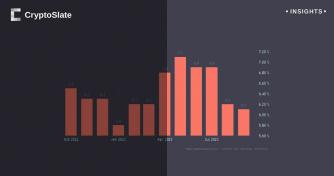
The eighth iteration of the Directive on Administrative Cooperation was formally adopted by the Council of the European Union
The eighth iteration of the Directive on Administrative Cooperation (DAC8), a cryptocurrency tax reporting rule, was formally adopted by the Council of the European Union on Oct. 17. The regulation will enter into force after it’s published in the Official Journal of the EU.
DAC was sanctioned in May 2023 following the enactment of the Markets in Crypto-Assets (MiCA) legislation. The inclusion of the number “8” in the revised program’s name signifies its eighth version, with each previous directive dealing with distinct aspects of financial supervision. DAC8 aims to grant tax collectors the jurisdiction to monitor and evaluate every cryptocurrency transaction carried out by individuals or entities within any other member state of the EU.
In its present configuration, DAC8 complies with the Crypto-Asset Reporting Framework (CARF) and the regulations specified in MiCA, effectively encompassing all cryptocurrency asset transactions within the European Union.
In September, DAC8 received overwhelming support, with 535 member votes for and just 57 against during the EU Parliament adoption voting.
Related: European regulator: DeFi comes with significant risks as well as benefits
United States regulators are also pushing hard to implement the crypto tax collection procedures as soon as possible. On Oct. 11, seven members of the United States Senate called on the Treasury Department and Internal Revenue Service (IRS) to advance a rule imposing certain tax reporting requirements for crypto brokers “as swiftly as possible.” They criticized a two-year delay in implementing crypto tax reporting requirements, which are scheduled to go into effect in 2026 for transactions in 2025.
Magazine: The Truth Behind Cuba’s Bitcoin Revolution. An on-the-ground report







